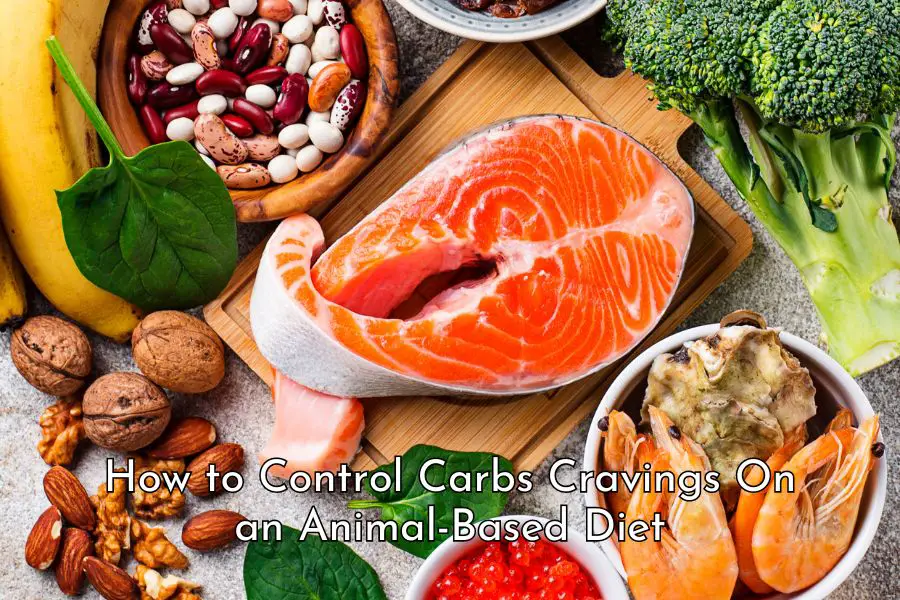How often you should eat in a day on the carnivore diet ultimately depends on your calorie needs and the type of food you eat.
However, for most people on the carnivore diet, one to two meals a day is enough because carnivore food is both nutrient-dense and calorie-dense.
In this post, we will look at the factors determining your calorie needs and how often you need to eat. We will also explore our ancestors’ meal pattern and whether having a three-meals-a-day routine or having many small meals throughout the day is a good idea.
How often should you eat in a day on the carnivore diet?
Based on average energy requirements for adults, you will need to eat no more than once to twice a day on the carnivore diet because its food is both nutrient-dense and calorie-dense.
The average energy needs for adult females are from 1,600 to 2,400 calories a day, depending on body size, body composition, age, and level of physical activity. [1]
If you eat just beef with 75% lean meat and 25% fat, a 100-gram serving will give you around 300 calories. That means you will need to eat from 1.2 lb to 1.8 lb or 0.5 to 0.8 kg of meat a day. [2, 3]
That is not a lot of food and most people can fit such an amount of food in 1 to 2 meals a day.
The average energy needs for adult males are from 2,000 to 3,000 calories a day. Similarly, assuming your meals consist of just beef with 75% lean meat and 25% fat, you will need to eat from 1.5 lb to 2.2 lb or 0.7 to 1.0 kg of meat a day. This can be easily be met with 1 to 2 meals a day. [4, 5, 6]
Please note that beef is chosen because beef and other ruminant meat is the most commonly consumed food by people in the carnivore community. The 75:25 lean-to-fat ratio is chosen because such a ratio would deliver around 70-80% calories from fat and 20-30% calories from protein, a ratio that most people feel best on the carnivore diet.
If you have a physically demanding job, work out a lot or have a bigger body with a high muscle mass percentage, you may need to eat more than 1 to 2 meals a day to meet your energy needs. However, for most people, eating once to twice a day should be sufficient.
Joe and Charlene Anderson who have been on the carnivore diet for over 20 years said that they only eat once a day at dinner time. Joe would eat from 2 to 3 pounds of meat a day and Charlene and their boys would eat from 1 to 2 pounds of meat a day.
A recent survey on the carnivore diet experience of 2029 people was carried out by a team of researchers from Harvard Medical School and other institutions.
With regard to meal frequency, 83% of the participants who have been on the carnivore diet for at least six months reported that they ate only 2 times a day or less. In particular:
- 2% ate less than once a day
- 17% ate 1 time a day
- 64% ate 2 times a day
- 17% ate 3 times or more a day.
Only 17% of the people surveyed reported eating 3 times a day while no participant reported eating more than 3 meals a day.
How often would our ancestors have eaten in a day?
While we don’t have any information regarding our ancestors’ meal routine during the Paleolithic period, it is likely that they would have had no regular feeding routine.
Imagine living in the wild and having to be totally self-sufficient, they would have gorged and eaten a few times a day at times of abundance and gone for days with little or no food at leaner times.
It is, however, quite certain that they didn’t have three square meals a day regularly.
You can certainly follow the no-routine routine of our ancient ancestors and alternate between feasting a lot for a few days and fasting for a few days afterward.
However, a regular eating routine can make life a lot easier for most of us.
My personal view is that, if you like to imitate the way our ancestors used to live, eat 1 to 2 meals a day for most of the time, but schedule periodic fasts a few times a year, perhaps once per season to enjoy the many benefits of fasting. [7]
Are three meals a day a good idea?
In my view, you don’t need to eat three meals a day for optimal health if your physical needs do not require it.
Three meals a day is a recently acquired habit and having early breakfast and late dinner may not be best for your health.
Three meals a day is a recently acquired habit
As mentioned above, our ancestors were unlikely to have followed a regular meal pattern. Three meals a day is a recently acquired habit.
The Ancient Romans reportedly had only one substantial meal a day, usually consumed at around 16:00. Although they also ate at sunrise and at noon, these meals were frugal, light, and quick. They believed that eating more than once per day was unhealthy and a form of gluttony. [8]
Three meals a day in America and many countries in Europe is largely a product of the Industrial Revolution. They originated from the British in the 17th century and were brought to other parts of the world by European settlers. [9]
Regular breakfast as we know it today only began in the 17th century. Breakfast became more important during the Industrial Revolution in the mid 19th century because laborers needed an early meal to sustain them at work. [10, 11]
Before that, most English people ate only two meals. The larger meal took place at about 11 a.m. but was actually called dinner. Supper, a lighter meal, was at around 5 p.m. [12]
Lunch as we know it today (a meal between breakfast and dinner) also didn’t become part of the meal pattern until the Industrial Revolution. Again, because workers would have worked for around six hours by midday, they needed something to sustain themselves till the evening meal, and lunch gradually became a routine meal.
Dinner eaten later in the evening only became popular due to the widespread of artificial lighting in the 19th century. [13]
Having early breakfast and late dinner may not be best for your health
Melatonin is a hormone that your brain produces in response to darkness. [14]
Your melatonin level peaks at around midnight before beginning to fall during the second half of the night toward the morning. [15]
When you first wake up in the morning, your melatonin level still remains relatively high up until around 8 a.m. [16]
Melatonin has an inverse relationship with insulin sensitivity (i.e. how responsive your cells are to insulin), the higher the melatonin level, the lower your insulin sensitivity. Therefore, it is not a good idea to eat breakfast immediately after you first wake up in the morning when your insulin sensitivity is still low.
It would be better to first go outside, be exposed to the natural light and bring down your melatonin level before eating your breakfast.
If it’s not possible to fit in an hour or so between wake-up time and breakfast time, in my opinion, it’s better to skip breakfast altogether, especially if you don’t usually feel hungry in the morning.
This will prolong your overnight fasting period which can be beneficial for your health. [17]
Similarly, eating dinner late at night and close to your bedtime is not a good idea either when your melatonin level is high and your insulin sensitivity is low.
The best time to eat seems to be around noon when your insulin sensitivity is at its peak.
A study has found that insulin sensitivity in adipose tissue reached its maximum value around noon and was 54% higher than that at midnight. [18]
Overall, the best time to place your meals is during the active phase of your day from the morning (about an hour after waking up) to the afternoon (a few hours before your bedtime) and it’s best to consume most of your calorie intake in the earlier part of the day. [19]
This is generally in line with our ancestors’ eating patterns. In the absence of artificial light, it’s unlikely for them to have eaten at the crack of dawn or later into the night.
Are there any benefits in eating many small meals throughout the day?
You probably have been told by your doctor or dietician or heard before that having many small meals spread out throughout the day is better for your health because it helps keep your metabolism up while controlling your blood sugar.
However, this is a pure myth. Studies have found that there is no difference in energy expenditure between nibbling and gorging nor does high-frequency meals boost metabolism or support weight loss. [20, 21]
Your metabolic rate is more likely to be influenced by what you eat rather than how often you eat. Protein has a higher thermic effect of food (i.e. the amount of energy needed to digest food) compared to fat and carbohydrate. The thermic effect of food is around 15-30% for protein compared to 5-10% for carbohydrates, and 0-3% for fat. [22]
Similarly, high meal frequency also does not help keep your blood glucose low.
In a small study where participants were fed either 3 high carbohydrate meals or 6 high carbohydrate meals, regardless of meal frequency, glucose levels remained elevated throughout the day without any differences in the insulin levels. [23]
When the participants were fed 6 high protein meals, there was a significant decrease in blood glucose and insulin compared to when they were fed 6 high carbohydrate meals. [24]
Conclusion
In summary, on the carnivore diet, eating 1 to 2 meals a day can meet the daily energy requirements for most people.
A regular meal pattern that includes breakfast, lunch, and dinner is a relatively recently acquired habit.
It is a myth that consuming many small meals throughout the day offers health benefits.
It’s best to consume most of your calorie intake during the earlier part of the day when your insulin sensitivity is at its peak.
If you find this post helpful, please consider sharing this post and my site with your family, friends, and followers. That would be much appreciated. Please also check out my library of articles on the carnivore diet here which is updated regularly.
Disclaimer: The information in this post is for reference purposes only and not intended to constitute or replace professional medical advice. Please consult a qualified medical professional before making any changes to your diet or lifestyle.





